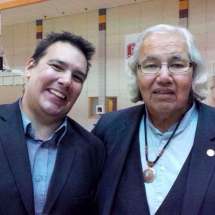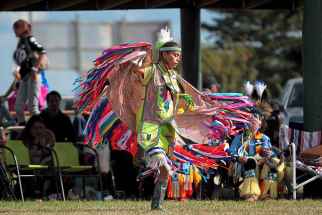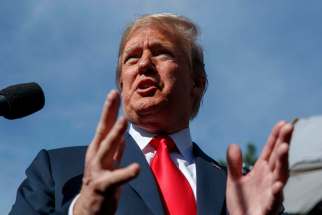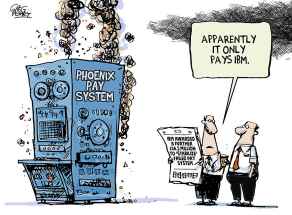A chance to understand where we’ve been, where we’re going
Read this article for free:
or
Already have an account? Log in here »
To continue reading, please subscribe:
Monthly Digital Subscription
$0 for the first 4 weeks*
- Enjoy unlimited reading on winnipegfreepress.com
- Read the E-Edition, our digital replica newspaper
- Access News Break, our award-winning app
- Play interactive puzzles
*No charge for 4 weeks then price increases to the regular rate of $19.00 plus GST every four weeks. Offer available to new and qualified returning subscribers only. Cancel any time.
Monthly Digital Subscription
$4.75/week*
- Enjoy unlimited reading on winnipegfreepress.com
- Read the E-Edition, our digital replica newspaper
- Access News Break, our award-winning app
- Play interactive puzzles
*Billed as $19 plus GST every four weeks. Cancel any time.
To continue reading, please subscribe:
Add Free Press access to your Brandon Sun subscription for only an additional
$1 for the first 4 weeks*
*Your next subscription payment will increase by $1.00 and you will be charged $16.99 plus GST for four weeks. After four weeks, your payment will increase to $23.99 plus GST every four weeks.
Read unlimited articles for free today:
or
Already have an account? Log in here »
Hey there, time traveller!
This article was published 15/06/2018 (2738 days ago), so information in it may no longer be current.
It’s ceremony time.
As summer arrives, Indigenous peoples from all walks of life take time to renew ourselves and our communities at Sundances, Midéwiwin lodges and Treaty Days across Turtle Island (North America). It’s also the time the powwow circuit ramps up.
In fact, as I write this I am in Wisconsin, where my family has been attending ceremonies four times a year since I was a boy. The lodge here has been going for centuries, even during the years our practices were outlawed. Once underground, our lodge is now full and thousands walk through its doorway every year.
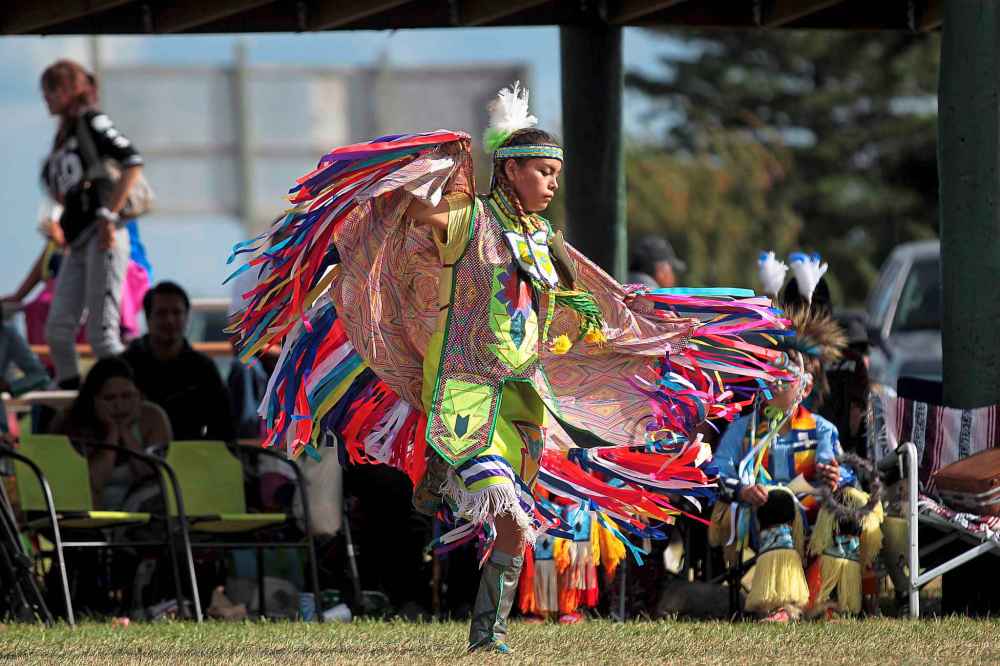
Not all Indigenous peoples attend traditional ceremonies, of course, but if my Facebook feed is any sort of litmus test, more are attending all the time.
Many Indigenous Christians attend ceremonies, too. After all, it was missionaries who told us to burn drums, stop speaking languages and forget traditions — not us. Many Indigenous Christians find ways to reconcile traditional and biblical paths.
In a similar vein, many non-Indigenous peoples participate in ceremonies, too. One of the strongest Sundancers I know is a non-Indigenous guy.
Not all ceremonies are the same. Some are just for Indigenous peoples. Some have stringent rules when it comes to the use of medicines, songs and stories. Some are liberal in their incorporation of metal, plastic and corporate tobacco. Others, not so much. Some have content you can speak about publicly, some are private and shouldn’t be shared without consent of those who participated.
It’s not that Indigenous peoples don’t hold ceremonies during other seasons, it’s just that summer is a big deal. It’s the time of year where the past is reflected upon and preparations are made for the future.
It’s like Indigenous New Year, where everything is renewed.
My favourite is the naming ceremony.
Nothing quite comes close to watching a person, standing with their family, and hearing their name unveiled by a name-giver. After it is spoken, the entire community helps announce the name to all four directions. It’s a pretty remarkable introduction to the universe.
For Anishinaabe, the most important ceremony in a person’s life is their naming. It’s said that once a name is announced, Creation can see that person clearly for the first time.
Many get a name during childhood, others when they are adults. Some receive a new name after a moment of growth or change (like a death or a dream) and carry multiple names. Some are intended to shape a person’s role or be a gift they must spend a lifetime learning.
My name, Niigaanwewidam, means “the sound of the future” or “the sound of the beginning.”
I’m still trying to live up to that one.
Places also have names. These are intended to help us understand what happens there.
For example, Winnipeg means “dirty” or “clouded water.” It’s a reference to the algae in Lake Winnipeg, or what we call ataagib, the life form affected by everything we put in and on the earth, from pig fertilizer to shampoo. The name Winnipeg illustrates the sacred ecology we live within.
Manitoba comes from two names. Manitou Api which means “where Creator sits (or placed life down”) and refers to the petroforms of the Whiteshell. Manitowapow means the “life in the water” and refers to the sound of the waves at the Narrows. Together, both of these names demonstrate Manitoba’s history and how we can live most productively in this space.
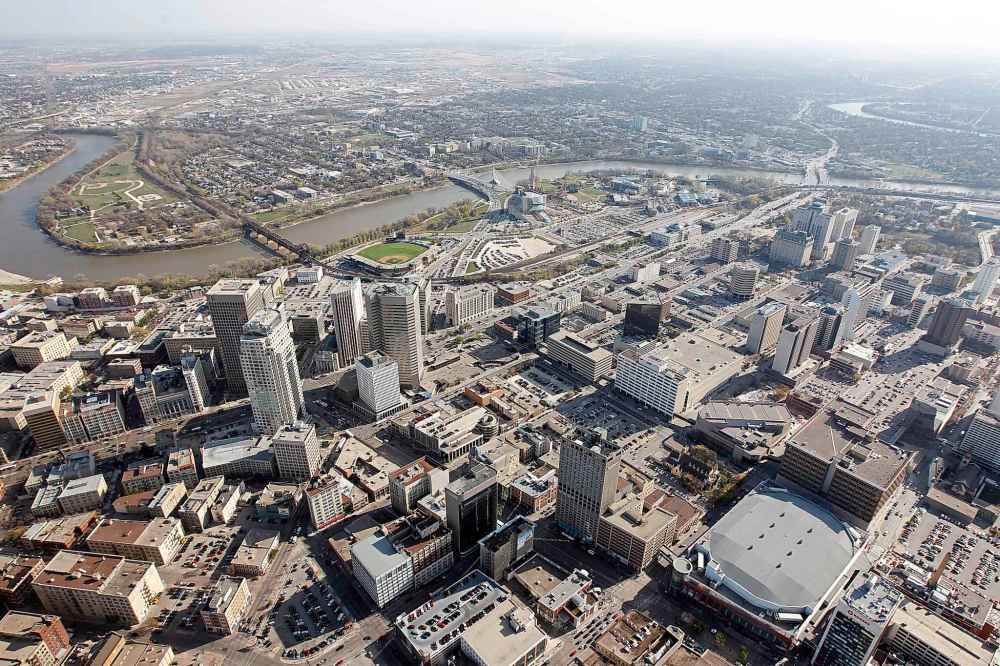
The standard licence plates affixed to Manitoba vehicles display clear teachings of the land and water and how life operates best here.
Recently, elders across the province have called for us to uncover the traditional names of people and places in Manitoba. Not knowing these names limits our knowledge of history and leaves us lost for the future. These names, after all, taught people how to live for a long time before they were covered up with cement.
The Treaty Relations Commission of Manitoba is completing a project that literally re-maps the province. What they’ve found is that the traditional names show us how rich our relationships are and can be here. These give us direction on a path forward.
We should do this with Winnipeg. It’s ceremony time, after all.
The Forks, for example, has had this name only for a few years. What this place was actually called might tell us what happened here and how we relate to it and each other.
It’s not that people and places are lesser because they don’t have traditional names, it’s just that names give clarity to the future. It’s another way to understand life and purpose in Creation, not the only way.
So I call for us to perform a ceremony, my relatives.
Let’s find our names.
We may even find ourselves in the process.
niigaan.sinclair@freepress.mb.ca

Niigaan Sinclair is Anishinaabe and is a columnist at the Winnipeg Free Press.
Our newsroom depends on a growing audience of readers to power our journalism. If you are not a paid reader, please consider becoming a subscriber.
Our newsroom depends on its audience of readers to power our journalism. Thank you for your support.





